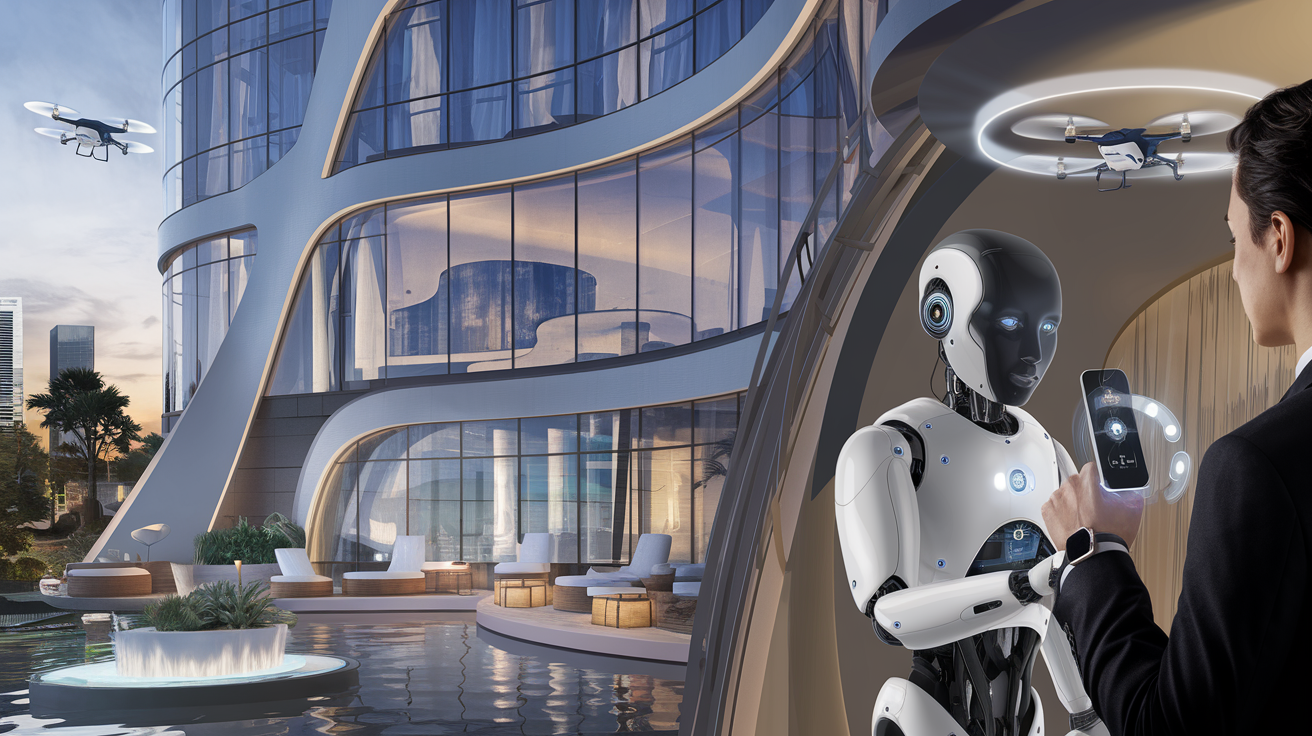The hospitality industry, a dynamic domain historically reliant on traditional service methods, is now entering a new era characterized by rapid technological advancements. From intimate boutique hotels to large international chains, operators have realized the imperative need to integrate modern systems like accounting casino software. These technologies are designed to heighten efficiencies, elevate the guest experience, and, most importantly, bridge the gap between operational demands and guest expectations.
In a sector marked by fierce competition and high guest expectations, the judicious application of technology can differentiate market leaders from their peers. It’s no longer adequate just to meet guest needs; creating personalized and unforgettable experiences has become the new standard. To stay ahead, embracing digital solutions is now indispensable.
The Role of Technology in Guest Experience Enhancement
Technology is transforming the hospitality experience by enabling businesses to offer more tailored guest services. At the forefront of these changes are innovations like digital concierge services, smart room controls, and mobile apps that facilitate everything from check-in to room service. Such advancements empower guests to personalize their stays, enhancing comfort and convenience.
A report by the Forbes Technology Council highlights the profound impact of digital tools in the hospitality industry. Interactive technology increases customer satisfaction and builds loyalty by providing customers with the controls they crave. This approach is proving indispensable in nurturing long-term relationships with guests who increasingly value personalized service.
Streamlined Operations Through Integrated Systems
Integration of advanced systems is vital for improving internal efficiencies within hospitality organizations. These systems reduce complexity in daily operations by connecting various departments, such as the front desk, housekeeping, and catering, ensuring real-time coordination. Such synchronization allows for immediate updates and smooth service delivery, directly impacting guest satisfaction.
Boosting Efficiency with Automation
Automated solutions have become pivotal in freeing up valuable time for hotel staff, allowing them to focus on higher-impact guest interactions. Robots now handle mundane tasks like room cleaning, while self-service kiosks streamline check-ins, reducing the necessity for unnecessary human intervention. These advancements advocate for a more efficient allocation of human resources, improving both employee and guest experiences.
Success stories abound where automation has led to increased operational productivity and guest satisfaction, with staff being redeployed to areas where the human touch is vital, such as personalized concierge services and guest relations.
Data-Driven Decision Making
Data has exceeded being just a part of operations; it has become a cornerstone in strategic decision-making within the hospitality industry. The ability to collect and analyze guest data offers invaluable insights into behaviors, preferences, and emerging trends. With such data, hospitality businesses can tailor services to optimize guest satisfaction and operational efficiency.
As highlighted by Hotel Management, data analytics enable management to make informed, strategic decisions that can lead to better performance outcomes. From predicting peak booking periods to optimizing resource allocation, these intelligent insights provide a competitive edge, allowing businesses to operate more efficiently and responsively to guest needs.
Overcoming Challenges in Hospitality Management
While the benefits of technology in hospitality management are vast, they are not without challenges. Data privacy and cybersecurity remain paramount concerns that require robust solutions to protect sensitive guest information. Moreover, integrating new technologies can sometimes lead to resistance from staff, necessitating comprehensive training and change management strategies to ensure smooth transitions.
Addressing these challenges head-on with innovative solutions ensures that enhanced guest experiences do not come at the expense of data safety or operational integrity. Building resilient, secure systems is crucial for maintaining trust and ensuring compliance with global data protection regulations.
The Future of Hospitality Management
Future trends in hospitality management are set to be dominated by further innovations in technology. Virtual reality tours for potential guests, AI-powered customer service, and sustainable ‘green’ technologies are on the cusp of mainstream adoption. These advancements promise to provide richer, more environmentally conscious experiences to tech-savvy consumers who value sustainability alongside comfort and connectivity.
Real-Life Success Stories and Case Studies
Many hospitality businesses that have adopted innovative technologies report marked improvements in efficiency and guest satisfaction. For example, hotels that have implemented mobile applications allowing for room customization have seen significant enhancements in guest feedback scores. These facilities demonstrate the transformative potential of technology when applied thoughtfully and strategically.
Conclusion
The hospitality industry stands on the brink of a technological revolution, with innovations poised to redefine guest interactions and internal operations. By embracing these changes, hospitality managers can create personalized, seamless experiences while achieving operational efficiency. The continuous evolution necessitates a proactive approach, ensuring that businesses are not only adapting to current trends but also paving the way for future advancements.

